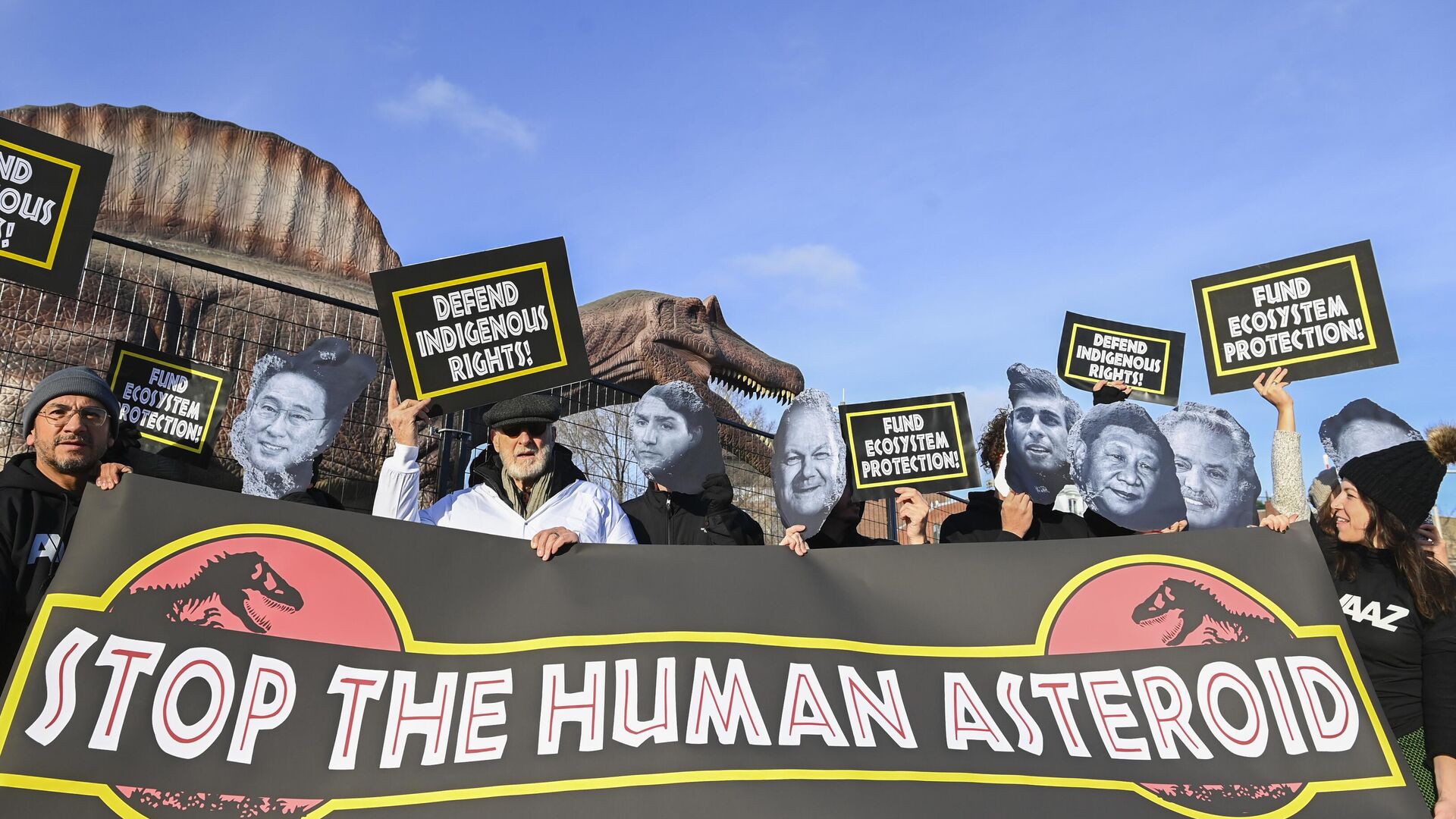https://sputniknews.in/20221221/cop15-nations-pledge-to-protect-30-of-the-world-by-2030-169268.html
COP15: Nations Pledge to Protect 30% of the World by 2030
COP15: Nations Pledge to Protect 30% of the World by 2030
Sputnik India
The 15th Conference of Parties adopted the Kunming-Montreal Global Biodiversity Framework (GBF) on Monday, setting 23 targets they aim to achieve by 2030. 21.12.2022, Sputnik India
2022-12-21T13:39+0530
2022-12-21T13:39+0530
2022-12-22T19:05+0530
world news
india
china
the united nations (un)
environment
climate change
https://cdn1.img.sputniknews.in/img/07e6/0c/14/170597_0:108:3255:1939_1920x0_80_0_0_37856b45e60890829cae96025ca69b18.jpg
Nearly 190 countries have reached an agreement at a United Nations biodiversity summit to protect the world's biodiversity, namely — about 30% of the land and marine areas by 2030. The two-week-long Conference of Parties (COP-15) summit ended in Montreal, Canada on Monday. It was previously supposed to be held in China, but moved to Canada due to the COVID situation in the country.UN Secretary-General Antonio Guterres hailed the deal, saying: "We are finally starting to forge a peace pact with nature," while Canada's Minister for the Environment and Climate Change, Steven Guilbeault, termed the deal as "truly a moment that will mark history as Paris did for the climate."According to United Nations Environment Programme, 17% of the land and 10% of marine areas are currently under protected status. The major takeaways include: The countries are expected to submit national reports to check up on the progress indicators in late by February 2026 and June 2029.
india
china
Sputnik India
feedback.hindi@sputniknews.com
+74956456601
MIA „Rossiya Segodnya“
2022
Deexa Khanduri
https://cdn1.img.sputniknews.in/img/07e6/0c/13/138923_52:0:533:481_100x100_80_0_0_cadf23d341691fc65ff2b22fd1afe584.jpg
Deexa Khanduri
https://cdn1.img.sputniknews.in/img/07e6/0c/13/138923_52:0:533:481_100x100_80_0_0_cadf23d341691fc65ff2b22fd1afe584.jpg
News
en_IN
Sputnik India
feedback.hindi@sputniknews.com
+74956456601
MIA „Rossiya Segodnya“
Sputnik India
feedback.hindi@sputniknews.com
+74956456601
MIA „Rossiya Segodnya“
Deexa Khanduri
https://cdn1.img.sputniknews.in/img/07e6/0c/13/138923_52:0:533:481_100x100_80_0_0_cadf23d341691fc65ff2b22fd1afe584.jpg
cop15, 30% of the land, marine areas by 2030, the 15th conference of parties, kunming-montreal global biodiversity framework, gbf, montreal, canada, biodiversity, climate
cop15, 30% of the land, marine areas by 2030, the 15th conference of parties, kunming-montreal global biodiversity framework, gbf, montreal, canada, biodiversity, climate
COP15: Nations Pledge to Protect 30% of the World by 2030
13:39 21.12.2022 (Updated: 19:05 22.12.2022) Deexa Khanduri
Sputnik correspondent
The 15th Conference of Parties adopted the Kunming-Montreal Global Biodiversity Framework (GBF) on Monday, setting 23 targets they aim to achieve by 2030.
Nearly 190 countries have reached an agreement at a United Nations biodiversity summit to
protect the world's biodiversity, namely — about 30% of the land and marine areas by 2030.
The two-week-long Conference of Parties (COP-15) summit ended in Montreal, Canada on Monday. It was previously supposed to be held in China, but moved to Canada due to the COVID situation in the country.
UN Secretary-General Antonio Guterres hailed the deal, saying: "We are finally starting to forge a peace pact with nature," while Canada's Minister for the Environment and Climate Change, Steven Guilbeault, termed the deal as "truly a moment that will mark history as Paris did for the climate."
According to United Nations Environment Programme, 17% of the land and 10% of marine areas are currently under protected status.
The major takeaways include:
Maintaining, enhancing and
restoring ecosystems, halting species extinction and maintaining genetic diversity.
"Sustainable use" of biodiversity - essentially ensuring that species and habitats can provide the services they provide for humanity, such as food and clean water.
Signatories aim to ensure $200 billion per year is channelled to conservation initiatives from public and private sources. Wealthier countries should contribute at least $20 billion of this annually by 2025 and at least $30 billion annually by 2030.
Meanwhile, the Democratic Republic of the Congo, which is home to lush tracts of rain forests, raised concern about the failrue of developed countries to launch a new fund for biodiversity.
The countries are expected to submit national reports to check up on the progress indicators in late by February 2026 and June 2029.


